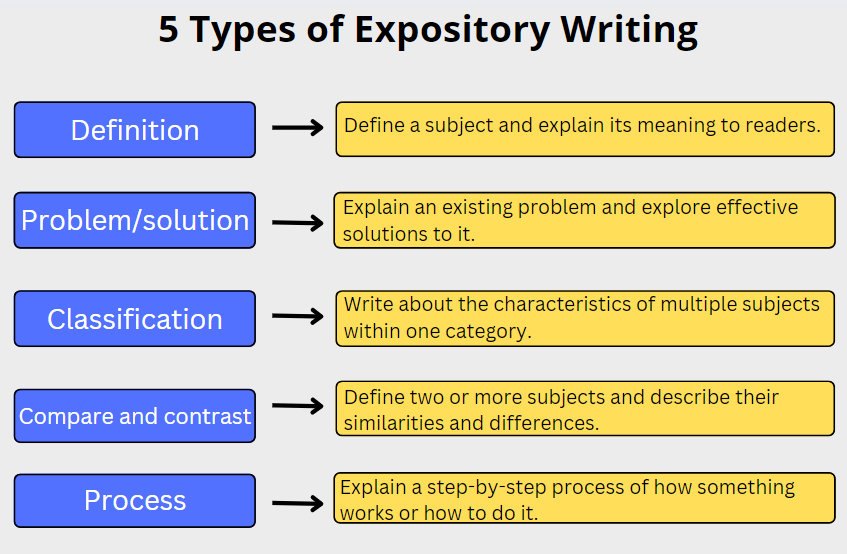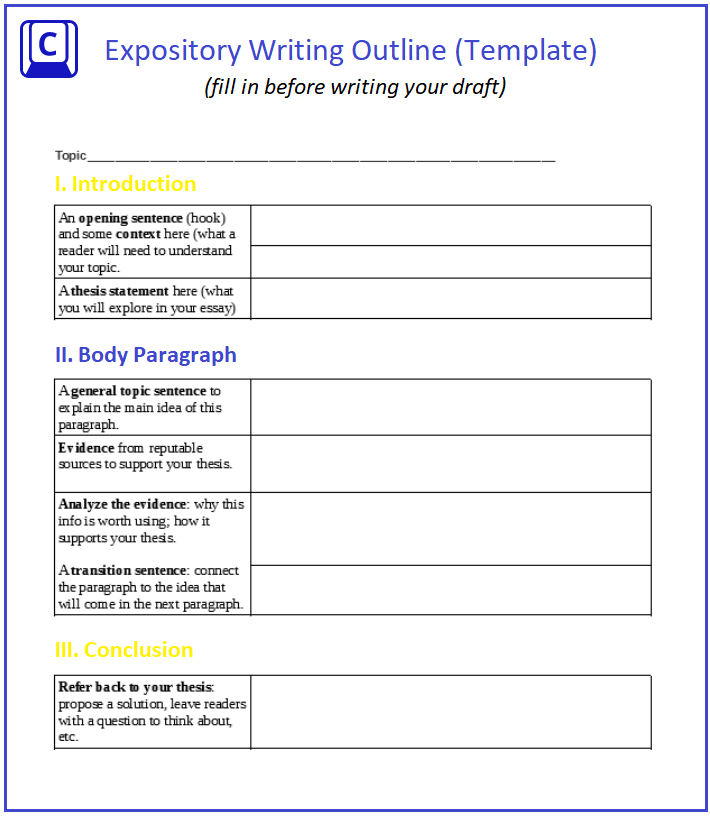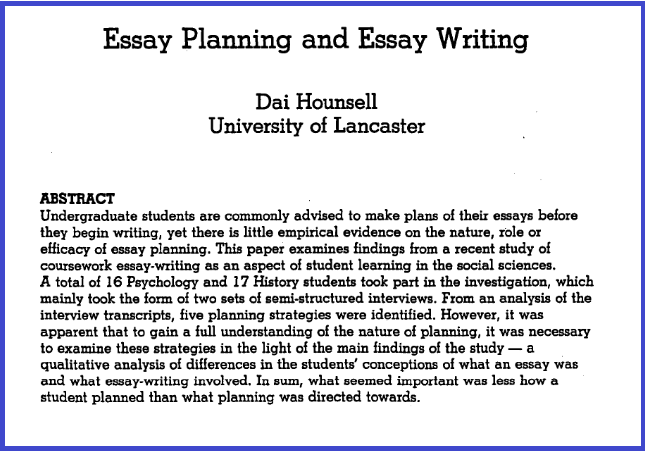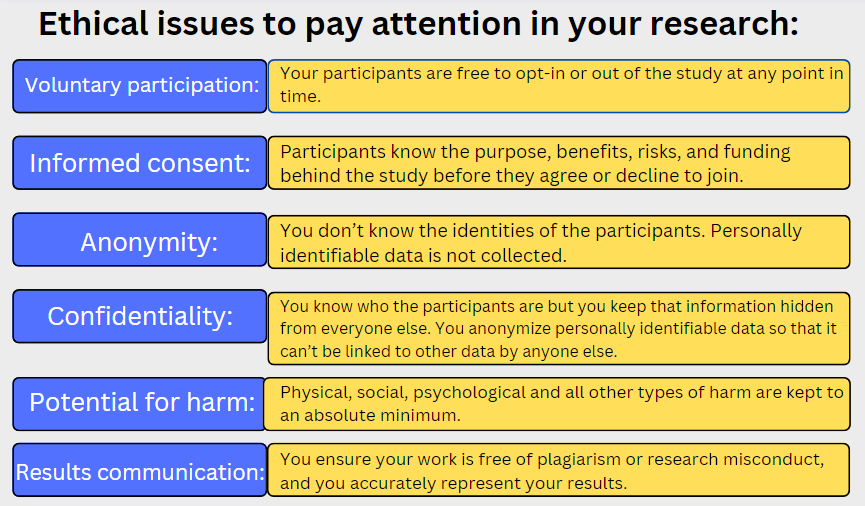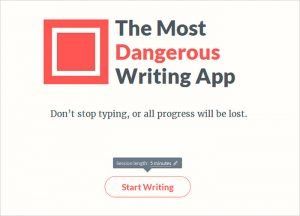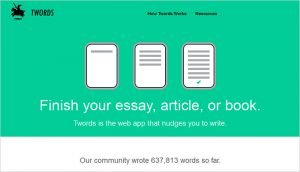
When choosing a topic for a research paper, it is natural to feel overwhelmed by the amount of published material available in reviews, articles, and reference pages. At the same time, with each new research project, you discover something new. As you are researching for your project, you have the opportunity to find a niche or topic that is used less frequently, and dive more deeply into knowledge.
Sometimes it is natural to spend a lot of time searching for the right topic. Depending on how small or great the field of research is, you need to reserve enough time to look through published materials on the subject. For projects like undergraduate work, 5-6 sources seem enough, and for graduate-level projects sometimes it requires more than 20 sources of information. Having a wide spectrum of papers to choose from will help you to find the necessary topic for your project.
Let Us Help You Choose A Topic For Research Paper
So, you have been researching for some time, and now you have some thoughts as to the right topic. The steps below will help you to think out a specific topic for your research paper. Have no time to do it yourself? Consider buying a research paper.
Step 1 – Choose any general topic. – “e.g., something about marketing”
Step 2 – Specify a little more detail. – “e.g., marketing plan”
Step 3 – Specify a lot more details – ” e.g., creating a good marketing plan”
Step 4 – Pass these three steps several themes to give yourself some variants of topics to choose from.
When you feel confident about the chosen topic, you can narrow it down. Always remember that you can go back to your search at any time of your writing process.
Many papers that describe the process of a marketing plan creation have been written, so we need to narrow down the chosen topic.
Step 5 – Add a couple of more specific words – “e.g., steps to creating a good marketing plan for your business”.
Step 6 – Turn the topic into a complete sentence that makes a statement – “e.g., 50 ready steps to creating a good marketing plan for your business”.
For the best result and to develop confidence, the method described above should be practiced several times. Those are the same methods that are used by our company, that can offer you cheap research paper.
If you are still stuck or confused about what theme to choose, the suggestions we’ve collected below will help you to come up with the right topic for your writing project.
Contents

Research Paper Topics About IT
Information technology is a vast area, it contains a wide range of subjects available including computer graphic development, cloud computing, Internet censorship, data security, robotic, 3D algorithms, electronic surveillance, artificial intelligence, auto text summarization, data mining, proxy server, business protocol, ad server, e-billing, and more.
1. New methodologies and challenges to IT management in health.
2. Common services center vs. community multimedia center: selecting the correct variety of IT services.
3. Procedures to enhance IT security.
4. The impact of digitization of medical records on the IT domain.
5. Racial and gender issues in the IT domain.
6. Innovative theories regarding computer imitation of a human being.
7. Interrelation, patterns, and existing theories on behavior and IT.
8. From where does spam email come and can we stop it?
9. Are children smarter (or more socialized) because of the Internet?
10. How do computer viruses spread and in what ways do they affect computers?
11. Should the federal government be allowed to regulate information on the internet?
12. How has the music industry been affected by the internet and digital downloading?
13. What are the latest ways to steal identity and money?
14. Cybersecurity.
15. How does a search engine work?
16. The problem of formalizing human skills and capabilities in artificial intelligence objects.
17. The challenge of communication network implementation in outer space.
18. Stalking, invasion of privacy vs. reasonable access.
19. Hacking crimes–workable solutions?
20. The issue of gamification and the potential of computer-assisted education.
21. Securing Internet commerce: is it possible in today’s arms’ race of hackers and evolving technology?
22. Is the sky the limit? The limits of computer-aided communication and computation.
23. At the crossroads of biology and computer science: the promise of computational neuroscience.
24. The challenge of building network infrastructure in developing countries.
25. Handling big data: data mining and data processing architecture.
26. Ethical issues in computer science: should software companies compromise their security to comply with the law?
27. How can the security and safety of self-driving cars be ensured?
28. Politics and computer science: the case of network restrictions in oppressive regimes.
29. Can we “E” everything? The premise of e-governments.

Internet Marketing
Internet Marketing combines Internet-related activities that target users directly and indirectly. Web marketing includes search engine optimization (SEO), banner ads, e-mail marketing, etc. Here are some topics that can inspire you:
30. Next-generation marketing strategies for making millions online.
31. Rules for digital marketing success.
32. Social media as a marketing tool for entrepreneurs.
33. How to prepare and implement a marketing plan.
34. Web marketing strategies to reach teens.
35. Online sports marketing: bridging the gap between theory and practice.
36. Selling your product and brain-world.
37. Internet techniques for nonprofits.
38. Internet marketing communications.
39. Strategic eCommerce marketing.

General Marketing
The General Marketing niche gives you insight into market, competitors, products and customers. You can also write about writing analysis, new product research, benchmarking, data usage, market tools and techniques, brand identity, ads, corporate communication, and more.
40. Competitive marketing strategies for managers.
41. Measuring and improving the ROI of any campaign.
42. How to use data – marketing with analytics and dashboards.
43. Services marketing management.
44. Strategic marketing relationships: strategy and implementation.
45. The art and science of international marketing research.
46. Tools and techniques for market research.
47. Qualitative research methods in marketing.
48. Global marketing trends.
49. How to give the business brand identity.
50. How to survive in the era of competition.
51. The future of sales, ads, and brand in the wireless age.
52. Research in media promotion.
53. Principles and practice of marketing communication.
54. Marketing to children.
55. Children’s programming and advertising.
56. Corporate communication and public relations.
57. Marketing and social construction.
58. Limitations of the media.
59. Should certain kinds of ads be banned in the interest of health/morality/annoyance – alcohol, cigarettes, prescription meds, etc…?
60. Most controversial political ads.
61. Media response and public outcry to political ads.
62. Campaign funds and their relation to political advertising.

Research Paper Topics About Photography
The art of photography is one of the most fascinating ones. The photography topics may range from history to sociology and style analysis. You can write about famous photographers, selling photos, Photoshop, photography techniques and styles, art of photo, and much more.
63. The history of photography.
64. Types of photography.
65. Famous photographers: the background and work of a famous photographer.
66. Photography, culture and society.
67. The art of selling photos online.
68. A photograph is worth more than a thousand words.
69. Photojournalism: motivations and meaning.
70. Understanding informational activities in photography.
71. Women’s images in fashion photography.
72. The art of black and white photography.
73. Nude photography – changing opinions.
74. The research of photo cameras.
75. The history behind the first camera.
76. The creation of the modernism movement in photography.
77. Innovators in photography.
78. The origin and usage of the camera obscura.
79. The art of family photography.
80. The Civil War: the first photographed war.
81. Photography techniques over time.
82. Computational photography.
83. How did photography affect the lives of a typical person?
84. Scientific photography using a telescope or a microscope.
85. High-speed photography.
86. How photography makes life better.
87. When does a photograph in the traditional sense of the word stop being a photograph?
88. Ethics of image manipulation.

Science Research Paper Topics
Science is one of the widest niches; it is easy and interesting to research because there are much info available online, in magazines and books. Depending on the requirements for your research paper, you can find many topics for your inspiration here.
89. The role of erythropoietin and calcitriol in the human body.
90. Key issues and potential solutions for toxic waste disposal.
91. Is nuclear energy too hazardous to use?
92. Will uranium isotopes precipitate the next scientific revolution?
93. How nanotechnology will impact modern science.
94. What cloning has in store for humanity: altering the personality.
95. How psychoactive drugs influence the central nervous system.
96. Deafness and using echolocation.
97. The process of feeling pain: treatment and pain relievers of the future.
98. People’s impact on climate change: the cost of a technological breakthrough.
99. Nuclear weapons: a responsibility for which no country is prepared.
100. Are the effects of global warming reversible?
101. Endangered species: causes and concerns.
102. The future of NASA.
103. Black mold: the bathroom invasion.

Sociology Research Paper Topics
This theme is a fascinating field of study. Sociology studies people, their practices, customs and cultures. As our culture always changes, the research of topics may be endless – you can research about anything, from Rihanna to Scientology. Here are some topic ideas:
104. Do governments with more women in positions of power rule more fairly?
105. Why is there a difference in birth rate among social classes?
106. Is solitary confinement effective for dangerous inmates?
107. Does middle child syndrome really exist?
108. How do views of the elderly differ between United States and Latin American cultures?
109. Does premarital cohabitation have a negative effect on marital success?
110. What are the social costs of poverty?
111. Is satire more effective than confrontation in reference to social change?
112. What were the effects of Reaganomics on the lower and middle classes?
113. How does divorce affect young children differently than teenagers?
114. A history of Human Rights.
115. International Human Rights.
116. Human Rights for the 21st Century: Civil Society, Sovereignty and Culture.
117. Human Rights, legitimacy, and the use of force.
118. The globalization of human rights.
119. Society in transition: problems of a changing age.
120. Social guidance: the study of social problems.
121. The institutions of society.
122. The psychology of crime.
123. How to understand social problems.
124. Cultural and intellectual property rights.
125. Discrimination at work: the psychological and organizational bases.
126. Ageism in legal system.
127. Perceptions of age discrimination.
128. Ethnicity and race: what is the difference/what is the correlation?
129. Multicultural society and the dominant culture.
130. Nationality and pride: what makes a patriot?
131. Immigration and assimilation.
132. Patriotism in [insert country].
133. Ratings and new technologies: how youth watch television.
134. Children’s television.
135. Hip Hop culture in the 80’s, 90’s and 2000s.
136. Punk: anarchy, rebellion, and revolution.
137. “Emo” culture: the self-destructive teen.
138. Jock culture.
139. At-risk youth and deviant behavior.
140. Masculinity and femininity in high school.
141. Cyberbullying.
142. Sex and adolescents.
143. Women in the workplace.
144. Homosexuality and how it is portrayed in the media.
145. Anorexia and women.
146. The feminist revolution.
147. Ghettos and gated communities.
148. Taxes and wages.
149. Wealth and race.
150. Undocumented immigration.
151. City funding and district zones.
152. The relationship between poverty and education.
153. Class and parenting styles.
154. Class and geographical segregation.

Research Paper Topics On Sports
The Sports niche is vast, it covers various topics from sport teams, sport stars to sportive food. You may choose to write about the playoff system, basketball, football, baseball, or other sport teams, local soccer or even sport food. Most of the commentary by sports broadcasters is evaluation as well, so you might want to choose an evaluation topic.
155. Who are thought to be the best sports players of today?
156. How should coaches behave?
157. How does American football differ from European football?
158. Are the sports today what they were a hundred years ago?
159. The negative effect drugs have in the sporting world.
160. Long-term ramifications and health problems.
161. How athletes are portrayed as potential role models for today’s youth.
162. How certain injuries are specific to particular sports.
163. How the ads industry performs during sporting events.
164. Employment in sports.
165. Famous sporting events (why they are memorable).
166. What is the difference between sports and entertainment?
167. Can fan-owned teams solve sports problems?
168. Coaching and gender.
169. Professional hockey and tax funding.
170. Safety issues in football.
171. Sport management and different leadership approaches.
172. Study of sports and gender stratification.
173. Safety issues in scuba diving.
174. Risk management in professional football.
175. Development of the golf Industry.
176. What Olympic games mean today.
177. Sports and ethics.
178. Impact of violence in sports.
179. Women in baseball.
180. Steroids: why they must be banned.

Medicine, Health and Pharmacy
If you are a medical professional, you often need to write research projects on various health related topics. The Medicine niche is vast, and you can choose from a great variety of subjects available: diseases, alternative medicine, medical treatments, determinants of health, ethics in healthcare, medical conditions, pharmacy, medical practices, and much more. Browse through the list of Health topics below to find the best theme for your research paper:
181. Attention Deficit Disorder: clinical and basic research.
182. ADHD: Attention-Deficit Hyperactivity Disorder.
183. Clinic on Alzheimer’s disease.
184. Memory disorders: the Amnesias.
185. Challenging Aphasia therapies.
186. Understanding Arthritis.
187. All about Asthma.
188. Stress and disease processes.
189. Understanding genetics.
190. Social interaction of children with visual impairments.
191. Cancer causes and controversies.
192. Adapting health care to serious chronic illness in old age.
193. Psychosocial aspects of chronic illness.
194. Psychological perspectives of pain.
195. Stress and heart disease.
196. Understanding Diabetes.
197. Questions and answers as to Ebola.
198. The case of Diphtheria, Typhoid Fever, and Syphilis, 1870-1920.
199. Dioxins and endometriosis.
200. Understanding environmental health hazards.
201. Epilepsy: assessment and management.
202. Alcoholism: effects on brain.
203. The Spanish Influenza pandemic of 1918-19.
204. Plagues and history.
205. An overview of food allergy.
206. Hepatitis B as an STD.
207. ADHD: attention-deficit hyperactivity disorder.
208. Sleep disorders: diagnosis and treatment.
209. Risk factors for acute Leukemia in children.
210. Fighting the obesity epidemic.
211. Sociological reflections on health, medicine, and society.
212. Menstrual disorders.
213. Immunization: the reality and the myths.
214. Mental disorders, medications.
215. Tourette Syndrome: a new look.
216. Theory and practice of cross-cultural neuropsychological assessment.
217. The history of Tuberculosis.
218. The great plague of Yellow Fever in Philadelphia in 1793.
219. What are the benefits and hazards of medical marijuana?
220. How does tobacco use affect the human body?
221. What are the risks of artificial tanning or prolonged exposure to the sun?
222. Benefits of weight training vs. aerobics.
223. Health websites give too much information.
224. Psychological disorders, such as eating disorders, Autism, Tourette Syndrome, ADHD, ADD, cutting and self-harm, Asperger Syndrome.
225. Alternative medicine.
226. Governmental insurance requirements.
227. Hoarding: symptoms and treatment.
228. Should the federal government pass a nationwide indoor smoking ban?
229. Manufacturing of generic drugs vs. U.S. pharmaceutical companies.
230. Antibiotics. Food steroids. Sprays. Are food manufacturers killing us?
231. Models: should there be a minimum weight limit?
232. Should parents avoid vaccinating their children?

Business Research Paper Topics
Business is a broad niche, so we have plenty of topics around. You might choose to write about small business, effective leadership, management, taxes, corporations, various business cases, promotion instruments, etc.
233. Small business and taxation.
234. Modern work environments.
235. Building positive employee relationships.
236. Corporate law.
237. Workforce regulations.
238. Identifying stakeholders in non-public companies: is the corporate responsibility the same as for public offerings?
239. Cultural conflict in globalization: strategies for successfully establishing a presence in a foreign culture.
240. Issues in modern Human Resources: Are today’s corporations patronizing employees or being more responsible for them?
241. Corporate abuse: How can executives so successfully manipulate corporations criminally?
242. Examine the actual impact of social media as a business promotion instrument.
243. Discrimination in the workplace: analyzing issues for today’s corporations.
244. A new model of leadership for business today, incorporating elements of existing leadership models and theories.
245. The roots of Apple fanaticism: best marketing lessons.
246. Is business leadership a skill that can be learned?
247. Word of mouth: a never-dying marketing form.
248. Does the link of pay to performance really make employees loyal?
249. How Facebook can be good for business: welcome to the new age of branding.
250. Does the link of pay to performance really make employees loyal?
251. Internal promotions vs. external recruiting: pros and cons.
252. Global standardization vs. local customization: which is better?
253. Is a strong presence in home countries obligatory for multinational corporations?
254. Management by walking around (MBWA): stress for employees or boost for productivity?
255. How can a sales letter avoid the waste bin?

Research Paper Topics On Education
Education is always bursting with new themes as we delve deeper into the process of teaching, and this results in a wide range of research topics.
256. Do modern schools make students literate or educated?
257. The function of technology in lesson planning.
258. Being late to class: reasons and ways to avoid this.
259. Can it ever be too late to study? Age-specific learning characteristics.
260. Do some innovations make students lazier?
261. The creation of particular learning methods for blind children.
262. Parents: a strong community or a group of spectators?
263. Can school ever be a safe place?
264. Censorship and education.
265. Should society worry about the growth of unschooling and homeschooling?
266. A myth about bilingualism: learning two languages confuses a child.
267. The mental process behind human learning.
268. The role of Wikipedia in modern education.
269. Bullying and vandalism: two eternal banes of every school.
270. Young teachers’ self-esteem is the key to their success.
271. The effects of contemporary teaching methods.
272. How can technology make lesson planning easier and less time consuming?
273. Test anxiety with regard to contemporary methods of teaching.
274. How to prohibit school bullies and harassment.
275. Learning should be a two-way street: students teaching teachers.
276. Better alternatives to standardized tests: are there any?
277. School syllabi and Web 2.0 technologies.
278. Should children be rebuked when they misbehave?
279. Where theory encounters reality in gender issues.
280. Positives and negatives of contemporary methods of teaching and state-of-the-art innovations.
281. Should society worry about the growth of unschooling and homeschooling?
282. Should we use educational video games in the classroom?
283. Young teachers’ self-esteem is the key to their success.
284. Innovations and evaluations of alternative systems in education.
285. Can it ever be too late to study? Age-specific learning characteristics.
286. Do some innovations make students lazier?
287. The interpretation of IQ test results.
288. Should society worry about the growth of unschooling and homeschooling?
289. Is there a one-size-fits-all strategy for education?
290. The role of Wikipedia in modern education.
291. Do online students cheat more than their peers in brick-and-mortar colleges?
292. A popular myth about bilingualism: learning two languages confuses a child.
293. Do modern schools make students literate or educated?
294. Better alternatives to standardized tests: are there any?
295. Learning should be a two-way street: students teaching teachers.
296. Should we use educational video games in the classroom?

Research Paper Topics About Government
Just like history, the government niche is always rich on news. With new laws, economics and society changes, the following topics are good examples of what you can write about in your paper:
297. Government monitoring the public – right or wrong?
298. Fascism as a form of government.
299. Principles of the American government.
300. Government supplied health insurance for all taxpayers and their dependents.
301. The role of government in the economy.
302. How effective was the provisional government?
303. Issues facing the new federal government.
304. Issues in australian government and foreign.
305. Government intervention in individual markets: a look at government intervention and antitrust law via the Microsoft case.
306. 1984 governmental control over the media and loss of privacy.
307. What are the major ideas of government and society contained in the Indian Constitution?
308. Presidential and parliamentary governments.
309. History of Roman government.
310. Links between GDP, consumption, investment and government expenditure.
311. How has the Australian government and media portrayed the refugee situation?
312. American citizen’s duties and obligations to the government based on the constitution.
313. Outline government.
314. The government’s role in a market economy.
315. State and local government accounting.
316. Government control over equality.
317. Government relations and business.
318. What is presidential government and parliamentary government?
319. Government censorship.
320. The impact of religion on the US government.
321. Internet regulation – government involvement.
322. US Airways and government aid.
323. Globalisation and government incentives.
324. How do government policies influence the level of inequality in the distribution of income and wealth?

Research Paper Topics About Environment
The environment and energy are the largest topics in political discussion. People began to recognize how much human behavior influence on the environment. This subject is always rich on topics. Browse through the list below to find the topic of interest to you.
325. Endangered species.
326. Alternative fuel/hybrid vehicles.
327. What are the risks of climate change and global warming?
328. Acid rain.
329. Pollution, air, and water.
330. Alternative energy.
331. Conservation.
332. Rain forests.
333. Marine pollution.
334. Deforestation.
335. Sustainability of buildings.
336. Endangered species.
337. Landfills.
338. How have oil spills affected the planet and what steps are being taken to prevent them?
339. Pesticides.
340. Recycling programs.
341. Wind turbines.
342. Greenhouse effect.
343. Radioactive waste disposal.
344. Cost of “green” programs.
345. Landfill issues.
346. Wildlife conservation: what efforts are being taken to protect endangered wildlife?
347. Pollution.
348. Drilling for oil in Alaska’s ANWR (Arctic National Wildlife Refuge).
349. Smog.
350. Renewable fuels.
351. Wildlife protection vs. rights of developers.
352. Soil pollution.
353. Excessive burden on industries?
354. Gasoline consumption vs. SUV’s popularity.
355. Clean air and water standards–weakened vs. strengthened.
356. What are the dangers of scuba diving and underwater exploration?
357. Should the use of coal be subjected to stricter environmental regulations than other fuels?
358. Is global warming a hoax? Is it being exaggerated?
359. How much is too much noise? What, if anything, should we do to curb it?
360. Climate change.
361. Endangered wildlife.
362. The threats to biodiversity in today’s world.
363. Should the use of coal be subjected to stricter environmental regulations than other fuels?
364. World pollution – an essential problem of 21st century.
365. What is the control measure of air, soil and water pollution?
366. Is wind energy really that cheap? Is it effective? Is it practical?
367. Environmental injustice.
368. The causes of desertification and how can it be controlled.
369. How to curb environmental problems caused by dams.
370. How can food security be achieved?
371. The causes of decline in food resources.
372. Untapped energy sources.
373. Is global warming a hoax? Is it being exaggerated?
374. Endangered and endemic animal species of the world.
375. Should DDT be reapproved for use in the wake of recent bedbug outbreaks across the country?
376. Effects and control measure of nuclear hazards.
377. Environmental consequences of deforestation.
378. What are the causes of land degradation and how can they be controlled?
379. World food problems.
380. What Is the role of an individual in conserving energy and water resources?
381. The pros and cons of various energy types.
382. Consumption patterns of water usage throughout the world.
383. How Is fossil fuel, oil, coal, nuclear power and natural gas destroying the environment?
384. Utilization and sustainable management of water resources.
385. resources can the forest offer?
386. How can renewable energy helps the natural environment of underdeveloped countries?
387. Advantages of multidisciplinary studies in solving environmental problems.

Legal Issues
Despite many sources of information,iIt can be challenging to find a specific legal topic for your research writing. It can be helpful to determine the jurisdiction – federal, provincial, municipal, etc. would deal with your topic. You can also choose a topic from the list we have collected to help you.
388. Who is responsible for airplane accidents? Should families of victims be entitled to compensation?
389. Civil disobedience: is breaking the law for a cause justifiable?
390. If civil couples have the same rights/privileges as married people, why get married?
391. Should denial of the Holocaust be illegal?
392. Should the state or federal government put laws into place to prevent bullying?
393. Should parents be held responsible when their children break laws?
394. In some states, it is illegal to cheat on a spouse. Should we prosecute cheaters? Is a law that’s not enforced really a law?
395. Should juvenile offenders be tried and punished as adults?
396. Should we legalize the sale of human organs?

Language and Linguistics
Language is a universal attribute in humans to communicate with each other. When it comes to language research topics, there are plenty of them. You can write about dialects, bilingualism, linguistics, grammar, word usage, phonetics, phonology, semantics or even philosophy of language. Here are some topics for you:
397. How is language possible? The evolution and development of language.
398. Language, culture and society: linguistic anthropology.
399. The evolution of spoken language.
400. A history of translation.
401. An introduction to the theory and practice of translation.
402. Translation and culture.
403. Sexual slang and gender.
404. Unusual words and how they came about.
405. History and structure of english words.
406. an introduction to lexicography.
407. The english language in modern times.
408. Using american sign language to engage, entertain, and teach all children.
409. Perspectives of sign language.
410. Psychology and linguistics.
411.Sentence structure.
412. Bilingual education.
413. Language differences in America.

Interpersonal Communication
There is nothing more complex than human communication and how people interact with each other. Hand gestures, body language, sounds or touch are all techniques that are used to communicate or add intensity to a message that words alone cannot.
414. How can interpersonal communication be used to reflect a person’s dominance within a group?
415. How does communication differ between two people compared with groups of more than two people?
416. Can we learn anything from the interpersonal communication skills of animals when compared to those of humans?
417. What methods do deaf people use to communicate emotions that are not necessarily used by those without hearing problems?
418. Do women demonstrate different interpersonal communication skills to men?
419. A comparison of interpersonal communication methods used by individuals from two distinct and different cultures.
420. An in depth study of individuals who can detect micro-communications?
421. How do children learn interpersonal communication skills?
422. How do deaf people learn sign language?
423. How does sign language change around the world?
424. An analysis of hidden communication in human beings?

World
The World category is about current events topics. You can cover the most important issues that takes place in the world right now. The topics vary from countries’ economy and political events to terrorism issues.
425. Middle East: Why so many conflicts? Are there solutions?
426. Overpopulation: What would happen globally if the demand for natural resources becomes greater than the supply?
427. Is N.A.T.O. and effective organization?
428. What is the effect on Africa of the fact that many children have been forced to be soldiers?
429. How can ethnic killings be stopped in Sudan?
430. Should women’s issues be more important in international affairs?
431. Is China about to overtake the United States economically?
432. What is the effect of piracy on the stability of world commerce? How important is it to stop pirates?
433. Is China starting to deal with their pollution problem?
434. Is there a better way to fight the war against drugs internationally?
435. How healthy is the Indian Judicial System?
436. Why do African nations have so many civil wars?
437. Has foreign aid hurt Africa more than helping it?
438. Does Colonialism still affect the nations that were colonized?

Discrimination
The discrimination subject is a worldwide issue which all the people has had to face in their lives. The newspapers and online media are filled with stories focusing on discrimination throughout the world. There are stories of civil wars and battles between various ethnic groups. Human beings suffer from discrimination all over the world, and there are plenty of topics to choose from.
439. Ageism and the american legal system.
440. Age discrimination in the american workplace.
441. Women and workplace discrimination.
442. Reverse age discrimination.
443. Age discrimination in employment in Canada.
444. How to improve race relations.
445. Prejudice: its social psychology.
446. Discrimination in education.
447. Individual diversity and psychology in organizations.
448. Why separate is not equal in sports.
449. Protection of victims vs. freedom of speech/rights of the accused.
450. Black athletes and race relations in twentieth-century America.
451. “Reverse” discrimination in sports.
452. How to fight mortgage discrimination.
453. Mortgage lending discrimination.
454. Profiling.
455. Reverse discrimination.
456. Discrimination in the workplace: analyzing issues for today’s corporations.
457. Gender discrimination.
458. Interracial marriage.

Culture Research Paper Topics
Culture is about the link between material culture and people’s interpretation of reality. The topics are about the culture of different countries, art, folklore, music, and churches.
459. African art in cultural perspective.
460. Culture and customs of Kenya (Nigeria, Congo, etc.).
461. Black music: interpreting its history from africa to the United States.
462. Questions of genre in black popular music.
463. Folksong as an ethnic expression.
464. Chicano/black/asian ethnic minority families.
465. Ethnic minority women in political movements.
466. Minority arts in American culture.
467. Black/Chicano/Asian literature (poetry, novel, short story).
468. Folklore and folk arts.
469. Ethnic minority movements in the U.S.
470. Origin and function of the early Black churches.
471. Role of Catholic/Protestant churches in Chicano communities.
472. Church role in the Civil Rights movement and economic development.
473. Family roles during slavery.
474. Matriarchal system – myth or reality?
475. Impact of native American culture on Mexican Americans / on American culture.
476. Nutritional value of ethnic minorities’ foods.
477. Cultural revival movements.
478. Harlem Renaissance – writers and styles.
479. Contemporary Chicano writers.
480. Should America have more than one “national language”?
481. Traditions in Chicano/Black/Asian culture.
482. Holidays and celebrations.
483. Similarities and differences among immigrant groups.

Research Paper Topics On Animals
There are over one million species in the world, so there is a great number of topics that relate to animals. It’s up to you whether to write about any of these species or to come up with a solid topic that would be involved a little more. Here are some good ideas to help you get started.
484. Endangered species.
485.Significance of reservations.
486. An informative essay about your favorite animal species.
487. Animals that live in the rain forest.
488. Importance of rainforests.
489. Animal testing for vaccinations.
490. Ethical treatment of animals.
491. Extinct animal species.
492. Animal testing for cosmetics.
493. Problems facing wildlife.
494. Animal fur for fashion.
495. Laws pertaining to animals.
496. Service animal training.
497. Animal abuse.
498. Adaptation of certain species.

Censorship
Censorship is an age-old issue in which the debate will continue. We have observed what censorship can do to people and to society as a whole. Below are some topics on Censorship that can help you with your research.
499. How has government censorship changed in the last century?
500. What role does the government play in censoring content in [country]?
501. What effect have government censures had on the availability and popularity of banned books?
502. Meta-censorship in Nineteen Eighty-Four by George Orwell.
503. Characters’ self-censorship in A Handmaid’s Tale by Margaret Atwood.
504. Argot as a censorship-avoidance method in A Clockwork Orange by Anthony Burgess.
505. Books that have been banned throughout history because they were deemed “obscene”: Moll Flanders by Daniel Defoe, Candide by Voltaire, and Lady Chatterley’s Lover by D.H. Lawrence.

Hillary Clinton
Hillary Clinton is one of the most accomplished women today. Since she served as First Lady of the United States from 1993 to 2001, she was a US Senator from New York, Secretary of State, and is frequently mentioned as a Presidential candidate for 2016. There are many interesting topics about Hillary Clinton, and some of them are below:
506. Hillary Clinton and the 2016 presidential election.
507. Early life and education.
508. Hillary Clinton: marriage, family, law career, and First Lady of Arkansas.
509. The role of the first lady.
510. Health care and other policy initiatives.
511. Response to Lewinsky scandal.
512. 2000 U.S. Senate Elections.
513. 2006 re-election campaign.
514. 2008 Presidential campaign.
515. Benghazi attack and subsequent hearings.
516. Clinton Foundation and speeches.
517. Hillary Clinton’s religious views.
518. Cultural and political image.

Computer Crimes and Security
With the emergence of Internet crimes,computer crime has changed over time. The types of internet criminal activity include identity theft, credit and debit card number theft, and money-laundering schemes. The research topics may be about cyber crime, child exploitation, online auction fraud, spyware and prishing.
519. Risk factors in computer-crime victimization.
520. Cyberstalking victimization among college students.
521. The analysis of policing cyberspace.
522. Understanding cyberterrorism.
523. Securing the Internet against cyberterrorism and using universal jurisdiction as a deterrent.
524. Europe establishes a cybercrime fighting unit.
525. FTC targets computer support scams.
526. Hacker culture.
527. Hacktivism and cyberwars.
528. Chinese hacking onslaught.
529. The 2008 Russian cyber campaign against Georgia.
530. Biometric keystroke dynamics.
531. Cybersecurity of biometric authentication.
532. How do people become cybercriminals?
533. What motivates cybercriminals, aside from money?
534. The correlation between people’s views on physical and cybersecurity.
535. The impact of cultural and political biases on cybersecurity habits (high-quality passwords, regular backups, etc).
536. Cryptography.
537. Data security.
538. Information security.
539. Product security.

Family Issues
Family and friendship are considered interpersonal relationships within psychology. You may write about marriage, children, teenagers, genealogy, dating, conflict resolution, interpersonal conflicts, interracial relations, doctor-patient relations, love, teacher-student relationship, and more.
540. African American family.
541. Bad parenting.
542. Birth order and crime.
543. Birth order and intelligence.
544. Birth order and personality.
545. Children of divorce.
546. Divorce and the effect on children.
547. Domestic abuse and violence.
548. Family Man: fatherhood, housework, and gender equality.
549. Gay marriage.
550. International adoption.
551. Married and single life.
552. Poligamy.
553. Relationship of adolescents to celebrities.
554. Reproduction: rights and justice.
555. Rights of children.
556. Working mothers impact on children.
557. Family policy matters: how policymaking affects families and what professionals can do.
558. Changing family.
559. Nontraditional families: parenting and child development.
560. Communication between grandparents and grandchildren in separated relationships.
561. Causes of conflict and cohesion in families.
562. Gender and ethnic differences in marriage.

Research Paper Topics About Agriculture
The Agriculture niche covers agrarian reform, agricultural history, policy and trade, cattle trade, corn history, family farms, famine, farm women, food supply, migrant farm workers, soil conservation, Soviet agriculture, tobacco industry, and more. The following topics are listed to provide several research themes in Agriculture.
563. Ancient Greek Agriculture.
564. The Origins of Agriculture in Europe.
565. Agriculture in the Middle Ages.
566. The Formation of Early Chinese Agrarian Economy, 206 B.C.-A.D. 220.
567. Introductory Routes of Rice to Japan.
568. World Agricultural Trade.
569. Cowboys: History and Culture.

Research Paper Topics About Gambling
Gambling research paper is often assigned to make the students understand the hazardous implication it can bring. For those of you who are going to come up with a gambling topic, we have compiled the list below. We hope these topics will help you to determine with the theme for your research paper.
570. Individual freedom vs. social damage.
571. Easy way to earn revenues vs. social damage.
572. Do lotteries actually benefit education or is it a scam?
573. Can gamblers ever acquire a statistical advantage over the house in casino games?
574. What is the attraction in gambling?
575. Is gambling fun or a reason to lose lives?
576. Life is a gamble.
577. Should gambling be banned forever?
578. Can gambling destroy a relationship?
579. What is meant by psychological gambling?
580. Gambling may have various causes but they are not more than its impacts.
581. Is gambling a threat or fun?
582. How to avoid the bad habit of gambling?
583. Issues of morality in casino gambling
584. Increasing gambling in youth is of serious concern.
585. Ethical analysis of gambling.
586. What are the impacts of gambling?
587. Gambling in America.
588. Risk factors in gambling.
589. Gambling – ever-increasing addiction.
590. What are the possible circumstances for gambling?
591. Should gambling be made legal in every country of the world?
592. An introduction to online gambling.
593. What is compulsive gambling?
594. Gambling in cricket.
595. What are the effects of gambling on the economy?
596. Gambling in baseball.

Gays
Homosexuality is a term that describes a sexual and emotional interest in members of one’s own sex. When considering “gay culture”, one might think of all members: gays, lesbians, bisexuals and transgendered. Browse through the list of topics to find one for your research paper on the subject of gays.
597. Need special rights for protection?
598. Should there be a constitutional amendment that allows gays and lesbians to legally marry?
599. Gay pride.
600. The US Military and Homosexuality.
601. Adoption rights?
602. Gay, lesbian, bisexual, or transgender.
603. The Catholic Church and the LGBT Population.
604. Gay parenting.
605. Gender roles and the perceived threat of homosexuality.
606. Homosexuality and the African American community.
607. Homosexuality in the 20th century United States.
608. Same-sex marriage and the Supreme Court.
609. Homosexuality and US politics.
610. Greek and Roman sexuality.
611. Lesbian relationships in Toni Morrison’s Sula.
612. The Stonewall Riots.
613. LGTB: A 21st century Civil Rights movement.
614. Machismo: A Latin American cultural analysis of homosexuality.
615. Alexander the Great and homosexuality.
616. Gay and lesbian persecution in the Third Reich.
617. Gays and lesbians in cinema.
618. The Gay Liberation front: a history.
619. The psychology of homophobia.
620. A double standard: male perspectives on lesbians vs. gays.
621. Gay and lesbian representations in Eastern literature.
622. The transgender phenomenon.
623. The underground LGBT community.
624. How the US military avoided the homosexuality issue.
625. Homosexual explorations in James Dickey’s deliverance.
626. Biological and psychological theories on homosexuality.
627. Homosexuality and modern Islam.
628. Depression and homosexuality: links and implications.
629. Homosexuality and the Bible.
630. Lesbians in the feminist movement.
631. Homosexual pejoratives in adolescent speech.
632. Suicide in gay and lesbian adolescents.
633. HIV and the LGBT: facts and misnomers.
634. Television depictions of homosexuality.
635. Job discrimination in the LGBT community.
636. Coming out of the closet: professional athletes from the LGBT community.
637. Children of gay and lesbian parents: a social and psychological exploration.
638. Social problems: gay and lesbian homeless youth.
639. The DSMV and changing psychological perspectives on homosexuality.
640. Divorce statistics and same-sex marriage.
641. Gay marriage and the changing family unit.
642. Beatnik sexuality: homosexual depictions in Williams S. Burroughs and Jack Kerouac.

History Research Paper Topics
History is one of the most interesting and fascinating niches with plenty of topics. History is infinite and recorded with the geographic divisions: ancient and classical history, US history, European history, Asian history, Middle Eastern history, African history, Australia and Pacific Islands history, military and social history. The topics below are just a small part of the history topics which you may cover in your writing.
643. Why was robespierre beheaded during the French Revolution?
644. Economic growth, social process, and civilization.
645. The landscape of history: how historians map the past.
646. Athens in the age of Socrates.
647. Africa and Africans in antiquity.
648. War, peace, and world orders in European history.
649. What role did jazz have in promoting desegregation in the United States?
650. What were the most important causes of the Civil War?
651. Was Bill Clinton an effective leader?
652. How did Aztec military structure compare with modern United States military structure?
653. What caused the influx of Irish immigrants to the United States during the second half of the nineteenth century?
654. What were the causes of the Cold War?
655. Why were the Battles of Saratoga considered a turning point for the Americans during the Revolutionary War?
656. How did military technology and strategy change between World War I and World War II?
657. What technologies made the Roman Empire successful?

Immigration
Immigration is a wide subject. You can write about immigration reform, refugees in different countries, immigration policy, illegal immigration, migrant farm workers, deportation of illegal aliens, immigration history.
658. Policing borders–workable solutions?
659. Realistic limits vs. openness toward people in need.
660. Should illegal immigrants be made legal citizens?
661. English as official language vs. respect for diversity.
662. Access to public school and public programs for Illegal Aliens.
663. Employment and/or taxation for Illegal Aliens.
664. What are the greatest concerns in regards to immigration policies for the upcoming half century?
665. How effective would a border wall be between Mexico and the U.S. in stopping the smuggling of illegal drug substances and illegal migration when every stage of prevention has eventually been overcome?
666. How have immigration patterns changed in the U.S. over the last 50 years? For instance, why have immigrants mostly come from some areas in certain decades?
667. How have immigration trends in the last 50 years affected communities’ population growth and diversity? How do these affect how local policies are written?
668. How has immigration policies changed in the United States in the last century? What were the biggest factors leading up to those changes?
669. What effects would deportation of illegal immigrants have on family members living legally within the United States? What options would be available to prevent separation?
670. How do immigrants feel about blending in with American culture rather than holding on to their own culture and reviving it within their new found communities?
671. Why have immigration reform laws been such hot-button issues in the last 12 years in the U.S. Presidential Elections? How have people responded?
672. Are people tolerant of legal immigrants? Are discriminatory acts grounded on legal status or rooted deeply in ethnic intolerance?
673. Many people in the U.S. complain about the increase of immigrants in the country but fail to realize that there are many jobs natives are unwilling to do. Why has this been the case?
674. What are the biggest health concerns for communities with high numbers of recent immigrants? Are there enough facilities to care for immigrants?
675. What kinds of stress do immigrant families feel in regards to assimilation in new communities in order to experience less discrimination?
676. How have the reasons for immigration by different groups across different decades changed in the U.S.? How has the nation’s economy changed?
677. If the path towards legal residence was made easier for immigrants, would there be less people coming to the U.S. illegally?
678. How effective and fair is the system of taxation for immigrants in the U.S.? Are they penalized for not being citizens?

Military
The Military subject is about the role that military plays in the security within the country. There are plenty of topics to choose for your writing project, such as battles, military strategies, Navy, wartimes, women in military, and more.
679. Preemptive strike policy.
680. Precision weapons.
681. Afghanistan – a success or stalemate.
682. Intelligence reliability.
683. A critical analysis of the Vietnam War.
684. How America fought its wars: military strategy from the American Revolution to the Civil War.
685. Military leadership from George Washington to Colin Powell.
686. World military leaders.
687. U.S. Army aviation through World War I.
688. The psychiatric dimension of the modern War.
689. Soviet and American psychology during World War II.
690. The psychological effects of war and violence on children.
691. Armed conflicts in developing countries.
692. The art of command in the Civil War.
693. Development of U.S. army airfields, 1910-1941.
694. Should the U.S. have mandatory military conscriptions?

Research Paper Topics On Psychology
General psychology covers a wide range of topics, so you have an extensive selection of subject ideas to choose from. You can choose to write an issue paper by taking one of the current issues in Psychology. Or you can take a profile of a famous psychologist and write about his or her life and theories. Below are several topics that can be covered.
695. Cross-cultural psychology and research.
696. International psychology.
697. Psychology and religion.
698. Investigate Freud’s contributions to psychology as they exist today: what value remains?
699. Investigate the psychological process in group dynamics with regard to the emergence of leaders and the compliance of others.
700. Are there gender foundations to psychology and behavior that are removed from cultural considerations? To what extent does gender actually dictate the thought process?
701. Compare and contrast Jung, Freud, and Adler: explore distinctions and commonalities.
702. To what extent is sexual orientation dictated by culture, and is there an orientation not subject to social and cultural influences?
703. Research and assess the effectiveness of radical psychotherapies and unconventional treatments.
704. What is “normal,” and to what extent is psychology reliant on culture to define this?
705. Examine Euripides and gender psychology: what do the Trojan Women and Medea reveal?
706. Research the concept of human will as both a component of individual psychology and a process or element removed from it.
707. To what extent is self-image influenced by culture in regard to eating disorders? Are external factors entirely to blame?
708. How do centuries-old beliefs of madness and dementia relate to modern conceptions of mental illness?
709. Is psychology itself inevitably a non-science in that virtually any theory may be substantiated or is there a foundation of science to the subject to which all theorists must conform?
710. Using three characters, explore Chaucer’s insight into human behavior in The Canterbury Tales.

Research Paper Topics On Religion
The general Religion covers such subjects as churches, religion and science, pastoral and religious counselling, sociology of religion, religion and evolution, religion and sex, religion and mental health, teenagers and religion. Also there are some specific categories such as religion and the arts, church and state, and more.
711. The role of religious ethics in public policy.
712. Religion and politics.
713. Religion and government.
714. Symbolism in religion and literature.
715. Christian symbol and ritual.
716. Symbols in celtic religious art.
717. Religion, myth, and ideology in popular films.
718. Religion and values in the movies.
719. Understanding the faith factor in church-based social ministry.
720. Religion and immigrants.
721. The Church and social responsibility.
722. God after Darwin.
723. Darwin and Butler – two versions of evolution.

Research Paper Topics On Terrorism
Terrorism is a serious threat to the world. There have been some important attacks in the USA and Europe in the past few years. As a result, stronger security measures have been enhanced in the places of potential threats. This subject is vital, and as there are some serious and interesting topics on Terrorism, you might want to write on the subject.
724. General Terrorism. This threat extends mostly throughout occidental.
725. Insecurity in trips. Some destinations are not recommended for people from Europe and USA.
726. Orient Hostage Crisis. Tourists are the main focus of this terror machinery.
727. Media Effect on Terrorism.
728. General Instability. Violence creates instability in some countries.
729. Is my country threatened?
730. Al Qaeda – the most well-known terrorist association.
731. Counterterrorism. The threatened countries increase the safety measurements every year and try harder to stop the menace.
732. Terrorism on the Internet. The Internet is a tool terrorists are using to reach more people worldwide.
733. Why is there terrorism? Why some people choose this means of violence.
734. Bio-terrorism. Bio-weapons are not allowed but some violent groups have tried to make use of them.
735. Cyber-terrorism. Terrorism takes place on the Internet and has serious consequences.
736. Consequences of terrorist attacks. Many people have suffered the consequences of these violent attacks.
737. War and terrorism. Violence is the main tool of terrorists.
738. Is there a solution? Nowadays there is no dialogue between both parts.
739. Safety measurements. The security protocols are updated every year.
740. Terrorism is countered by having the right ideas in our society.
741. Terror is in your mind. Terror is an option.
742. When is it going to end? There is no end to this war at sight but it should come to an end in the future.
743. People can’t live in terror. That is no solution to the problem but what is the correct mindset?
744. Current ethical implications associated with torture.
745. The limits between religious freedom and terrorism.
746. Personal freedoms and the use of terrorism.
747. Preemptive counterterrorist measures and the challenges it presents to human rights.
748. Whether a victim’s government should be trusted with the punishment and the trial for a terror suspect.
749. Whether international law criminalizes terrorism.
750. Whether there is a neutral international definition for terrorism.
751. Whether terrorism should be added to the crimes over which the international criminal Court has jurisdiction.
752. Whether lawyers should be tried if they give advice to governments about excessive counterterrorism policies.

Women
There is nearly an endless amount of topics about women, so you have a great opportunity to choose a topic you really care about. Below are some interesting topics on the subject of Women.
753. Is a woman’s hair a sign of power?
754. Are women who carry guns safer?
755. How accurately are women portrayed in the media?
756. Heart disease Is the No. 1 killer of women.
757. Are women hypocritical about cheating?
758. Are women-owned wineries different from those owned by men?
759. Are women embarrassed to seek solutions for incontinence?
760. Are radical mastectomies really necessary?
761. Are women who ride motorcycles biker babes?
762. Are taller women more successful?
763. Extraordinary women of the Medieval and Renaissance World.
764. Great women of the press.
765. First ladies.

Police Work
The major role of the police is to protect people, keep order, and investigate crimes. It becomes more and more complicated to keep everything in order, so a profession of a policeman is a huge responsibility. There are many good topics that discover this thought. You will find some of them below.
766. Police brutality: this is for people, who are interested in human rights issues.
767. Recruitment and police: this topic will be interesting for the unemployed strata, or anyone who considers changing his job.
768. Corruption and police: this is a very challenging topic one may take. Check the reliability of your sources before writing on it.
769. Laws and police: this title presupposes discussion of the police efforts in enforcing the law.
770. Police and America: this essay would be full of descriptive essay prompts.
771. A day at the police station: this is an autobiographical essay. Here a real-life incident can be described.
772. Countries with high rates of police brutality.
773. Influencing factors for police brutality.
774. How police salary influences rates of police brutality.

Research Paper Topics About Politics
The Politics subject covers the study of the political system, political behavior, and political bodies. Politics is closely tied with sociology, economics, and philosophy. The topics can be about political movements, historical events, political systems, social trends, or about the future of politics throughout the world.
775. History of political science.
776. Political psychology.
777. History of international relations.
778. Realism and neorealism.
779. Idealism and liberalism.
780. Dependency and world-systems.
781. Foreign policy analysis.
782. Feminist international relations.
783. Leadership and decision making.
784. Deterrence theory.
785. Rivalry, conflict, and interstate war.
786. The democratic peace.
787. The founding of the American political system.
788. Urban politics.
789. Media and politics.
790. U.S. Congress.
791. U.S. presidency.
792. American judicial politics.
793. American bureaucracy.
794. Interest groups and pluralism.
795. American federalism.
796. American political parties.
797. Global politics of resources and rentiers.
798. Complex interdependence and globalization.
799. International political economy and trade.
800. Nonstate actors in international relations.
801. International organizations and regimes.
802. International environmental politics.
803. State and local government.
804. Public policy and administration.
805. Political campaigns.
806. Political socialization.
807. Voting behavior.
808. American foreign policy.
809. Race, ethnicity, and politics.
810. Gender and politics in the United States.
811. Religion and politics in America.
812. LGBT issues and the queer approach.

Research Paper Topics About Media
The Media which is broadcasted publicly is known as mass media – television, radio, film, magazines, newspapers, and so on. As our society is largely diverse, media industries rely on the study of cultural trends and patterns. The subject covers general media topics and specific categories as well.
813. Freedom of speech.
814. Talk radio.
815. The portrayal of women.
816. Media conglomerates/ownership.
817. Media bias.
818. How have the film and music industries dealt with piracy?
819. What steps are involved in creating a movie or television show?
820. Does news coverage favor whites?
821. Do the media (both print and broadcast) report fairly? Do they ever cross the line between reporting the news and creating the news?
822. Should newspaper reporters be required to reveal their sources?
823. Reality television.
824. Minorities in mass media.
825. Media portrayals.
826. Television violence.
827. Sensationalized media.
828. Examine the issues of responsibility in pharmaceutical companies’ promotion of drugs in the media.
829. Children’s programming and advertising.
830. Copyright Law.
831. Materialism.
832. Media bias.
833. Media conglomerates, ownership.
834. Minorities in mass media.
835. Political correctness.
836. The portrayal of women.
837. Reality television.
838. Stereotypes.
839. Talk radio.
840. Television violence.

Literature Research Paper Topics
When it comes to Literature, there is no end to the topics that you can research. To make the task of choosing a topic easier, you can start broad and then make the topic more specific, according to your own interests. You can also take some ready topics from those we have selected for you in this post. Please check out the topics below:
841. Is Katniss Everdeen from the Hunger Games trilogy a positive role model for young girls?
842. Do Romeo and Juliet glorify teenage suicide?
843. Does Walt Whitman deserve the title “Father of Free Verse”?
844. What is the significance of the Eyes of Dr. T.J. Eckleburg’s billboard in The Great Gatsby?
845. Did Edgar Allan Poe’s common theme of premature burial reflect his own fear of being buried alive?
846. How are the influences of Bram Stoker apparent in modern horror fiction?
847. How did Langston Hughes typify the Harlem Renaissance?
848. What is the significance of Walden in the modern world?
849. How are populist politics represented in The Wonderful Wizard of Oz?
850. How does J. K. Rowling incorporate religious themes in the Harry Potter series?

